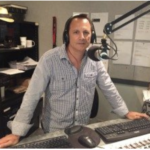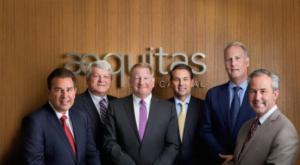“There is sufficient evidence of actual fraud and badges of fraud apparent that establish the Ponzi-like nature and fraudulent activity,” writes Ronald Greenspan, the court-appointed receiver, in a scathing new report on Aequitas’ rise and dramatic fall in 2016. “The Investigation uncovered instances of self-dealing and misstatement of financial statements and activities intended to perpetuate an investor fraud.”
The 174-page report, filed in U.S. District Court in Oregon, offers the most in-depth look yet at what may be the largest investment scandal in state history. Aequitas failed in March 2016, owing $617 million to its clients. The report may provide a blueprint for federal criminal investigators who have long been studying the case.
The U.S. Securities and Exchange Commission sued the Lake Oswego operation in March 2016 and convinced a federal judge to install Greenspan as a receiver.
Even as the company’s cash shortage reached a critical stage after August 2015, the report says, Aequitas took care of its insiders. While panicky investors clamored in vain for Aequitas to return their money, Greenspan reports, the company paid $3.5 million to executives and members of its advisory board in its last eight months of existence.
Behind the glitzy offices and the big talk, Aequitas had been flirting with financial disaster for years. The company suffered chronic cash shortages dating back to 2011, Greenspan said.
That required a perpetual scramble for new capital even as the company’s financial condition worsened, which exacted a toll on top management. Greenspan uncovered a remarkable email exchange between Aequitas co-founder Brian Oliver and Andrew MacRitchie, the firm’s one-time chief compliance officer, which seems to indicate they were fed up with the charade.
The exchange came immediately after a meeting of the Aequitas advisory board, made up of several local business and political bigwigs. Bob Jesenik, Aequitas chief executive officer, managed to deliver disappointing financial results — the company lost $29 million in the prior six months — without the board asking substantive questions.
This stubborn obliviousness came as a bitter disappointment to both Oliver and MacRitchie.
Oliver: “Bob was masterful in managing the AB (advisory board.) Maybe I am the only one that sees a different scenario than what was presented, and feel like we are believe (sic) our own BS at a very critical time.”
MacRitchie: “I really thought (advisory board member) Will [Glasgow] was going to drill in but he backed off – really disappointing since I think only the AB can challenge the strategy now. I am worried about (Aequitas Capital’s) ability to continue to be viable for selling (private notes) – the results are ugly. We desperately need to stop the bleeding.”
In addition to Glasgow, a prominent business executive and lawyer, the Aequitas advisory board included, among others, former television station manager Marty Brantley and author and Oregonian contributor Gerry Frank.
The receiver recently entered into a negotiated settlement with Frank over an overdue debt he owed Aequitas totaling nearly $250,000. The debt was in connection with a failed rock and roll-themed restaurant launched back in 2007, documents show. Frank initially denied he owed anything in the matter but eventually agreed to repay the debt with $61,365 in cash and stock he owned in CarePayment Technologies, a company Aequitas bankrolled, a lawyer for the receiver confirmed.
Aequitas was primarily a consumer finance operation. It attempted to build companies involved in student loans, medical debt financing, and auto and motorcycle loans. But it proved a difficult and time-consuming task. So, the receiver claims, Aequitas simply fudged the numbers to make the companies seem more successful than they were.
Aequitas marked up the value of EdPlus, a chronically unprofitable student loan and college advisory service, from $5.3 million to $25 million in less than two years. It was even more aggressive with CarePayment, its medical debt finance operation, bumping up the valuation from $21 million to $140 million.
These “unrealized valuation gains were the sole source of “profitability” and masked repeated annual negative cash flows from operations,” Greenspan said. They also allowed Aequitas to charge higher management fees.
On more than once occasion, Jesenik seemed to use the company treasury as his personal piggy bank, according to the report. In 2010, Greenspan said, Jesenik had an Aequitas subsidiary loan $325,000 to his brother-in-law who was buying a hardware store.
Three years later, The Hill Land LLC, a company funded by Aequitas, bought 7.44 acres in Tigard for $1.4 million and then leased the property to Westside Christian High School. On top of that, Aequitas then donated sufficient cash to cover Westside Christian’s monthly lease payments until 2016, the receiver said.
Whether Jesenik did the deal as a demonstration of his Christian values or because his son and daughter had attended the school is unclear.
“The transaction had no legitimate business purpose,” Greenspan wrote. “The purchase by Aequitas and lease of property used by a church school previously attended by Jesenik’s children appears to use investor money for the sole benefit of Jesenik and/or Jesenik’s family.”
Investors have filed several civil suits against Aquitas executives and the company’s accountants and lawyers claiming they were lied to. It remains to be seen whether Greenspan will follow suit and file a complaint of his own. Greenspan declined interview requests as he has since he took over the company in March 2016.
____________________________________________________________________
Robbie’s Rant…

Here we go again…
A simple remedy for this kind of fraud is complete and unquestionable transparency. Whereas, an investor has the ability to see all books and records along with verifying a money-trail from the day he makes his deposit to any date he wants to check on his investment etc. With “true transparency” this kind of fraud would not exist.
For starters, executives would never be able to pay themselves millions of dollars using investors money if there was true transparency. Look at all the charities out there. Even the ones that advertise on TV, which raise millions of dollars, have specific rules to follow along with a governing body that oversees every single nickel collected. Even with these rules, and a governing body, owners of charities are allowed to take huge salaries. In addition to getting special perks like the charity may pay for their car, it may pay for their gas, etc. If you ever look at the breakdown of expenses for any particular charity, (Note: You can Google any charity you’d like), and most likely you will see salaries and expenses listed right on the ledger. With charities, they really don’t hide the fact that they’re taking gigantic salaries. Therefore, it’s not fraud. It’s disclosed. The problem is, most people who give to these charities don’t know this, they’re too stupid. This is how charities stay in business.
Now, for the conman in this case, they were outright fraudsters. They took millions of dollars for themselves and don’t even have capital to pay back the investors who put up the capital. It’s comical in a way but it’s sad for the retards who gave these bozos their hard-earned money. This isn’t the first and it won’t be the last of its kind. All you can do is learn from the mistakes of others before they become yours.
About The Author

- Robert Louis Annenberg Is a 40 year seasoned property owner, manager, investor, builder/developer and business man who is also an author of five published books to date (Amazon.com) and the chief editor of LifeQuestJournal.com. He can be reached at: [email protected] and (201) 289-2500.
Latest entries
 #3 The Annenberg ReportOctober 2, 2020A Few More Interesting Facts About Money I Think You Should Know…
#3 The Annenberg ReportOctober 2, 2020A Few More Interesting Facts About Money I Think You Should Know… #3 The Annenberg ReportOctober 1, 2020I was a Degenerate…What’s Your Excuse?
#3 The Annenberg ReportOctober 1, 2020I was a Degenerate…What’s Your Excuse? #3 The Annenberg ReportSeptember 23, 2020The Facts of Money…
#3 The Annenberg ReportSeptember 23, 2020The Facts of Money… #4 Real EstateJuly 11, 2020Cipriani Investments Sues Over Alleged Home Flipping Scheme
#4 Real EstateJuly 11, 2020Cipriani Investments Sues Over Alleged Home Flipping Scheme


 Management was a $617 million Ponzi-like scheme that survived a protracted cash crisis only by employing accounting tricks and using new investor money to pay off older obligations.
Management was a $617 million Ponzi-like scheme that survived a protracted cash crisis only by employing accounting tricks and using new investor money to pay off older obligations.